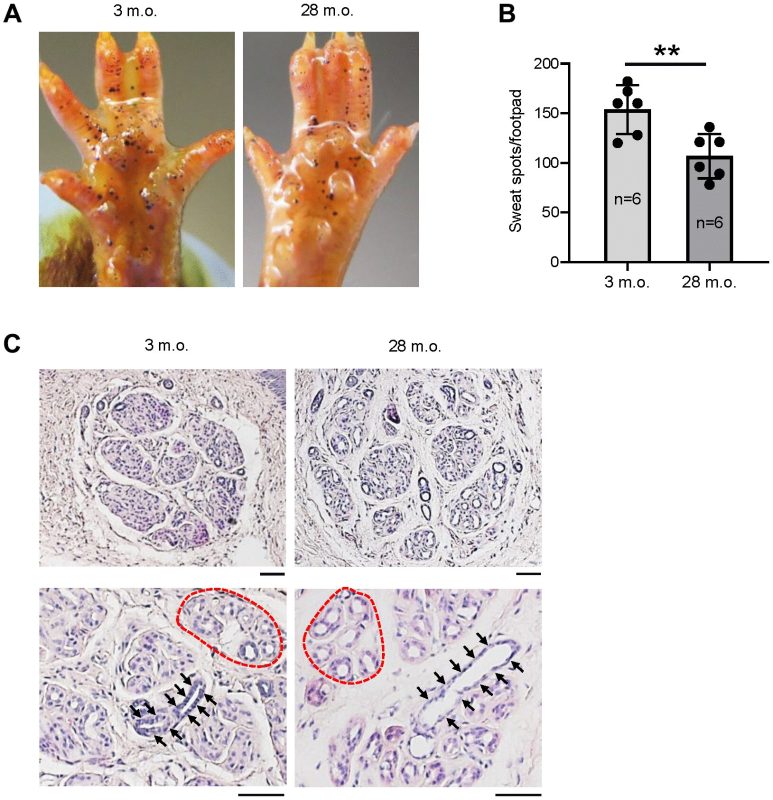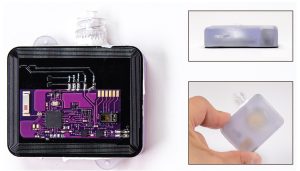Study finds age-associated gene expression changes in mouse sweat glands

A new research paper published in Aging is titled “Characterization of age-associated gene expression changes in mouse sweat glands.”
Evaporation of sweat on the skin surface is the major mechanism for dissipating heat in humans. The secretory capacity of sweat glands (SWGs) declines during aging, leading to heat intolerance in the elderly, but the mechanisms responsible for this decline are poorly understood.
In this new study, researchers Alexandra G. Zonnefeld, Chang-Yi Cui, Dimitrios Tsitsipatis, Yulan Piao, Jinshui Fan, Krystyna Mazan-Mamczarz, Yutong Xue, Fred E. Indig, Supriyo De, and Myriam Gorospe from the National Institutes of Health’s National Institute on Aging investigated the molecular changes accompanying SWG aging in mice, where sweat tests confirmed a significant reduction of active SWGs in old mice relative to young mice.
“In this study, we first obtained evidence that, in mouse, aging primarily reduced the number of active sweat glands,” write the researchers.
“We first identified SWG-enriched mRNAs by comparing the skin transcriptome of Eda mutant Tabby male mice, which lack SWGs, with that of wild-type control mice by RNA-sequencing analysis.”
This comparison revealed 171 mRNAs enriched in SWGs, including 47 mRNAs encoding “core secretory” proteins such as transcription factors, ion channels, ion transporters, and trans-synaptic signaling proteins. Among these, 28 SWG-enriched mRNAs showed significantly altered abundance in the aged male footpad skin, and 11 of them, including Foxa1, Best2, Chrm3, and Foxc1 mRNAs, were found in the “core secretory” category.
Consistent with the changes in mRNA expression levels, immunohistology revealed that higher numbers of secretory cells from old SWGs express the transcription factor FOXC1, the protein product of Foxc1 mRNA.
“In sum, our study identified mRNAs enriched in SWGs, including those that encode core secretory proteins, and altered abundance of these mRNAs and proteins with aging in mouse SWGs,” conclude the authors.
More information:
Alexandra G. Zonnefeld et al, Characterization of age-associated gene expression changes in mouse sweat glands, Aging (2024). DOI: 10.18632/aging.205776
Provided by
Impact Journals LLC
Citation:
Study finds age-associated gene expression changes in mouse sweat glands (2024, May 14)
retrieved 15 May 2024
from https://medicalxpress.com/news/2024-05-age-gene-mouse-glands.html
This document is subject to copyright. Apart from any fair dealing for the purpose of private study or research, no
part may be reproduced without the written permission. The content is provided for information purposes only.








